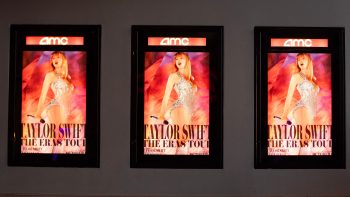Taylor Swift convinces Apple to pay indie artists
Share Now on:
Taylor Swift convinces Apple to pay indie artists
Taylor Swift’s social media shaming of Apple appears to have prompted the company to make changes to its new music streaming service, Apple Music.
Swift was threatening to withhold her album, “1989” because of the company’s policy to not pay artists during a three-month trial period.
Apple’s reversal was announced on Twitter. Eddy Cue, the company’s senior vice president of internet software and services made the announcement, “We hear you Taylor Swift and indie artists,” in a tweet,, and Apple will pay royalties during the three-month trial.
The specific behind Apple Music’s royalties plan remain to be revealed and Apple has declined to comment. So, is this a win for musicians and artists?
“I would say it’s more of a blip than a major win,” says Miles Raymer, a freelance music journalist from Brooklyn.
Raymer points out that the economics of these new streaming services are still being sorted out, and the royalty issue was never a huge issue — for artists, or Apple.
“I think the quick reaction from Apple really underscores how little money is involved in the bigger picture,” Raymer says. “Streaming royalties are a fraction of a penny per song. The cumulative amount of royalties they’ll pay over this three-month period is a fraction of the billions that they invested to purchase Beats.”
So unless you are among the Taylor Swifts, Led Zeppelins, or the Beatles of the world, streaming royalties aren’t likely to make a dent in your bottom line.
Even with the success of streaming music — Apple, Spotify, Soundcloud, etc. — it’s a very crowded market. But, Apple’s Jimmy Iovine (and Beats co-founder) claims that Apple Music will be the first “artist friendly,” streaming platform.
A statement, Raymer says, amounts to little more than well-intentioned PR.
“Streaming platforms talking about being artist friendly sort of sounds like McDonald’s talking about artisanal hamburgers — it sounds nice, but it won’t change anything,” he says.
But controlling access to the distribution network, whether it’s terrestrial radio with Clear Channel, the iTunes store, or Spotify, means the artist will be subject to economics of other companies.
Jim DeRogatis is the co-host of Sound Opinions on Chicago public radio.
“I mean, you’ve got to remember, in the history of humankind making music, the idea of selling recordings, or selling access to it is a mere century and change old,” he says.
Which is why, DeRogatis notes, artists will always be better off if they can sell their music directly to consumers, either at concerts, or their own online marketplace.
There’s a lot happening in the world. Through it all, Marketplace is here for you.
You rely on Marketplace to break down the world’s events and tell you how it affects you in a fact-based, approachable way. We rely on your financial support to keep making that possible.
Your donation today powers the independent journalism that you rely on. For just $5/month, you can help sustain Marketplace so we can keep reporting on the things that matter to you.


















